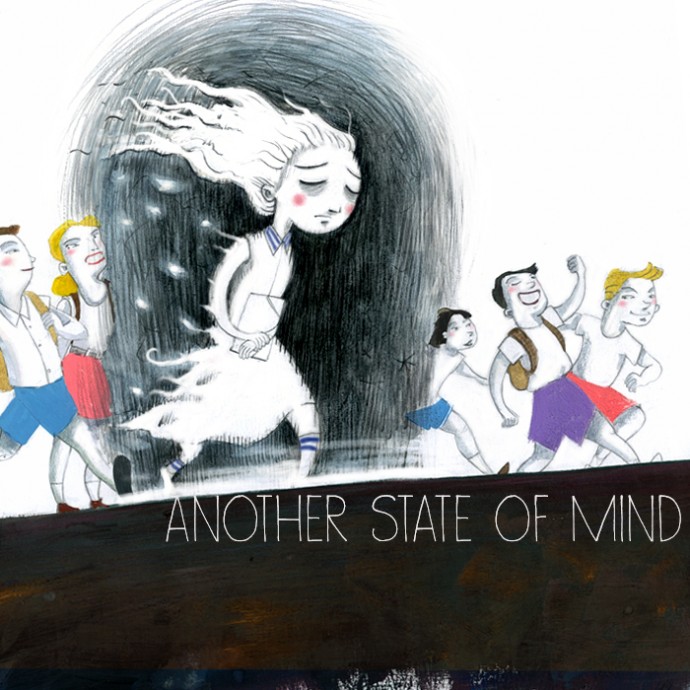Insomnia is a sleep disorder in which an individual is either incapable to stay asleep for a desired time period or unable to fall asleep at all. Long-term insomnia, a sleep disorder that is not resolved after a month of sleeplessness, can cause several additional problems that affect an individual’s mind and his/her physical body. Treatment of the disorder depends on the origin of the problem, which is either chronic physical pain or psychological problems. I met a girl who’s been suffering from chronic insomnia for a year, and she’s still unsure what caused the disorder in the first place. She talks about her dealings with a problem that, to this day, is still unknown to her.
I never had a problem with sleeping: if anything, I slept too much. There was no crucial moment, no sudden change in my life and no big personal problem; nothing I could point my finger at when my sleeping habits suddenly changed. At first, it seemed like a minor issue because I was waking up in the middle of the night after only a few hours of sleep. But still, I slept for five hours a night and that was enough for my body and mind to recharge its batteries. I didn’t pay too much attention to it until, one day, I just stopped falling asleep.
It happened in Turkey, where I attended a summer school. We had activities and workshops scheduled during the day, and on our free time we were doing sports and spending every free minute outside. Each night, I came home completely exhausted, both physically and mentally. I was in the kind of state in which people see the bed and instantly fall asleep. My friends certainly did. But I just couldn’t. I was lying on the bed, unsuccessfully trying to make myself go to sleep. There was no way for me to force my mind to shut, my brain to stop working.
The closest I came to experiencing sleep was this weird state of imaginative reality. I got into a place where I just didn’t know whether I was sleeping or not; whether I imagined I was sleeping or I dreamt I was awake. It certainly wasn’t a normal sleep and if anything, it made me more exhausted than ever. Not only physically, it was mostly a mental thing. I did feel tired during the day, but what got me the most was knowing that I was stuck in what felt like a never ending state of wakefulness. Even during the day, I couldn’t escape the feeling I knew I’d get at night. I felt like I had reached the border of reality, the edge of life. I never had such a feeling of helplessness like I did in Turkey. I had completely lost control over my mind and body, and it seemed like I had lost touch with my own life. Nothing I did could change this state in which I found myself. I couldn’t empower it; I couldn’t escape it.
It got so bad I bought a new plane ticket and went home a week earlier than I planned. I just couldn’t take it anymore – the hot weather, all the joy around me, the happy people that were doing their best to sympathize with me. That only pissed me off more. They acted like they knew what I was going through, but really, they had no idea. You wouldn’t believe the kind of advice I got. “Maybe you should take a hot shower” or “just drink some chamomile tea.” As if those suggestions could have brought me back to normal. Believe me, I wasn’t in the kind of state to simply explain that my problems couldn’t be solved with a bit of hot water. I wanted to punch them in the face. People in general, actually.
Safely back at home, I tried to do everything to cure my insomnia. I watched series during the night, tried reading boring books, was exercising at 3 am, hoping I’d get tired enough to fall asleep, took midnight walks, and I even tried that trick with counting the sheep. Nothing would work. I slept for two hours a night, tops, and I was losing my mind. Going to a psychiatrist was an obvious next move. I figured that it was probably a mental problem, but I just didn’t know what it was.
Anyone who knows me thinks I live in a perfect world. Apart from this issue with insomnia, I can’t say I disagree. I have terrific friends, great relationships with my mother and my sister, and I always got good grades in school. Also, success would follow me and the guys would chase after me, even at times when I wasn’t sure why. I am satisfied with my life more than most are. Even though I realized that something had to be wrong, I just couldn’t think of a problem big enough to prevent me from sleeping. And an issue is much harder to solve when you’re not sure what exactly it is you’re trying to fix. It left me feeling powerless.
I never really expected a psychiatrist to pinpoint my problem and resolve it; all I wanted him to do was help me sleep again. To go to bed at night, fall asleep, sleep for eight hours straight and to wake up well rested – that was the dream. The first time I saw him, I told him that and he prescribed me Paroxat, antidepressants, within minutes. They wouldn’t help me sleep even when I increased the dosage, so I went to see him again. This time, he would give me Seroquel, antipsychotics that, taken in big dosage, treat bipolar disorders, schizophrenia or mania. But taken in small dosages, they only slightly decrease your brain activity and make you feel relaxed.
I still remember the first night I took them: I went to bed, took a pill and fell asleep. I couldn’t believe it when I woke up and looked at the time. I slept for eight hours straight, something I was unable to do for months. It was like a huge burden was lifted off my shoulders. I felt superb – not only had I woken up well rested, but also I understood that normal sleep was possible for me again. I felt like I could start living again, like I could have a fresh start and conquer the world. Seroquel were my miracle pills that enabled me to get a grasp of my life again.
I sleep much better since I’ve started taking the pills, but that doesn’t mean that I get a good eight hours of sleep every night. I can still wake up in the middle of the night. Though rarely, I still find myself in the state in which I’m not sure whether or not I’m awake. I dream much more vividly now, sometimes even to the point where I have to think about what was reality and what I only dreamt about. But they do always help me fall asleep. That’s what makes all the difference, just knowing that I’ll be able to end a day at night and start a new one tomorrow.
I am aware that there is much controversy about treating insomnia with antipsychotics, especially for a longer time period. These are strong pills and side effects can be severe. There are at least 30 of them listed on the user instructions. Headaches, high fever and mood and behavior are among the most common symptoms, but I’ve never experienced any of them. The pills affect me neither physically nor psychologically; all they do is to make me fall asleep. It probably depends on each individual, but they do not harm me in any way I know of. That’s the reason I don’t see any problems with taking them.
I’m taking the pills to treat insomnia just as I would take an aspirin to treat a headache. People don’t even think about whether or not they should take a pill to get better when something is wrong with them physically, so why should the treatment of this disease differ from all the others? As far as I’m concerned, there is not much to think about. If I can’t sleep without the pills and can sleep when I take them, the decision is obvious. I have no intention whatsoever to return to the horrible situation in which I once was, and as long as I know of no other option to get some sleep at night, I’ll continue to take the pills.
I am aware that the pills are only treating my sleeping disorder for the time being and that I could never cure it completely just by taking them. When I have more time, I intend to study all the alternative ways to try to find a permanent solution for it. I don’t think I will ever identify the problem that has caused my insomnia in the first place, which is why I’ll have to search for other options to cure it. I do still hope that this problem, if it even exists, will somehow resolve itself. Sometimes I think I’ll only become aware of what the issue was when it passes and I’m be able to sleep again. Maybe I’ll only get to know the cause of it all once its no longer there. Or maybe I’ll never know. For now, those pills are my life savers, and until I don’t find any other solution to cure my insomnia, I’ll continue to treat it with antipsychotics.







